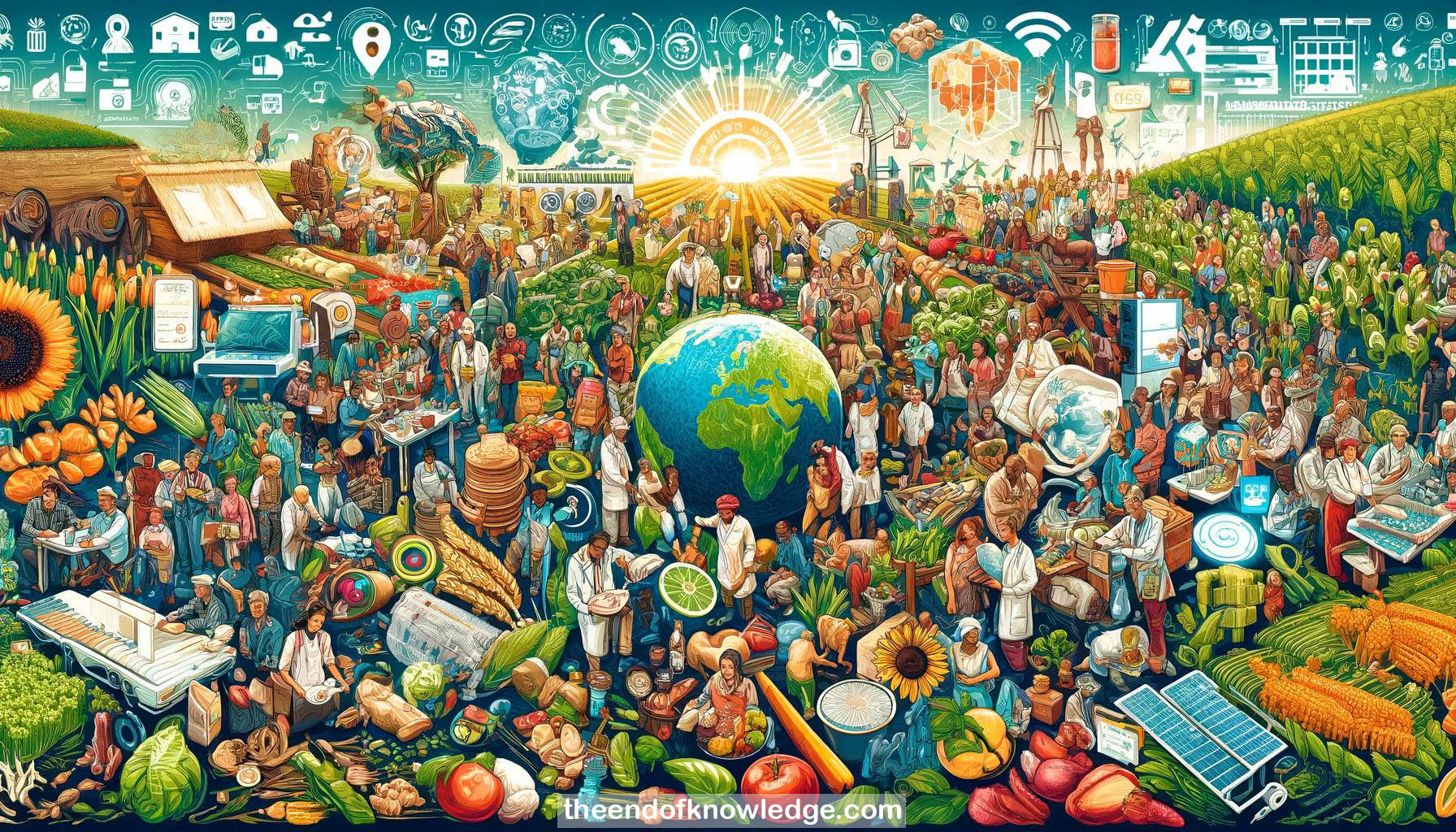 >
>
Concept Graph & Resume using Claude 3 Opus | Chat GPT4o | Llama 3:
Resume:
1.- Emmanuel Faber, Chairman and CEO of Danone, discussed the food revolution and how the pandemic is related to the way we live and produce food.
2.- Monocropping agriculture has reduced natural habitats, bringing humans into contact with new viruses. Global travel enabled the virus to spread worldwide.
3.- The food system relies on just 6 plant species for 75% of calorie intake, resulting in a collapse of biodiversity.
4.- 1.7 billion women in rural areas produce 50% of worldwide food but own only 2% of land and receive little aid.
5.- AI must be governed as a common good to empower people. It can reduce food waste, support regenerative agriculture, and measure CO2 footprint.
6.- Lack of connectivity infrastructure in rural Africa is a barrier to farmers accessing data and benefiting from AI.
7.- Danone aims to be carbon neutral by working with farmers on regenerative agriculture practices and supporting a shift to plant-based diets.
8.- The food revolution means people want food sovereignty and a relocalized food system based on local food traditions and agricultural conditions.
9.- AI should be designed to accept diversity and exceptions to avoid standardizing thought. Danone invests in agricultural biodiversity startups.
10.- Francesca Rossi gave an overview of the evolution of AI ethics and AI for good over the past 5 years.
11.- In 2015, the Future of Life Institute conference on AI brought together a multidisciplinary group to discuss beneficial AI.
12.- In 2017, the Asilomar conference led to 23 AI ethics principles being published, focusing on values, research practices, and long-term issues.
13.- In 2016, major tech companies formed the Partnership on AI to address AI ethics issues through multi-stakeholder collaboration.
14.- Companies like IBM published their own AI ethics principles. IEEE launched an initiative on ethical considerations in AI.
15.- Many sets of AI ethics principles have been published globally, with consistent themes. The principles now need to be put into practice.
16.- AI for good initiatives started earlier, such as using AI for computational sustainability in 2008.
17.- Other early AI for good programs focused on social good, public health, conservation, and educating the next generation of AI researchers.
18.- The 17 UN Sustainable Development Goals provide a vision for beneficial AI, but society is not on track to achieve the goals.
19.- Scaling AI for good requires collaboration platforms, reusable patterns, sustainable business models, and convening problem owners and problem solvers.
20.- The AI for Good Global Summit has successfully brought together UN agencies and AI experts to connect problems with AI solutions.
21.- The AI Commons initiative aims to provide a collaborative environment to develop, experiment with, and share AI solutions for social good.
22.- Current AI excels at finding correlations in big data but struggles with causality, learning from small data, and adapting to disruptions.
23.- Expanding AI capabilities in causal reasoning, adaptability, and learning efficiency by studying the human mind could benefit AI for good applications.
24.- Significant progress has been made in AI ethics and AI for good, but more work is needed to put principles into practice.
25.- Initiatives must connect efforts to proactively address near-term AI risks with a long-term vision for beneficial AI.
26.- Platforms, tools, and business models to scale AI for good need further development, as do data and model sharing approaches.
27.- Making AI for good economically sustainable requires input from funders, stakeholders, domain experts, and technologists.
28.- Sector-specific AI ethics frameworks for areas like climate change, healthcare, and gender equity are needed.
29.- AI will impact planetary health and gender equity through both technical solutions and non-technical approaches like education and judicial guidelines.
30.- Ensuring AI ethics principles drive desired behaviors requires detailed interpretation and implementation beyond high-level tenets. Developing nations must be included.
Knowledge Vault built byDavid Vivancos 2024